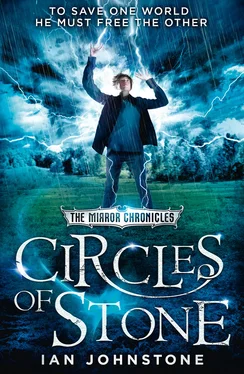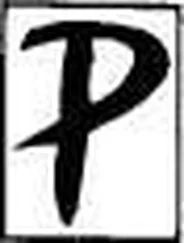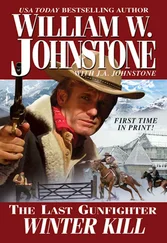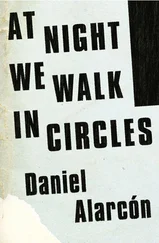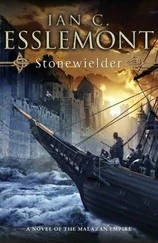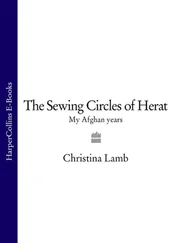Sylas turned the box between his fingers. It was made of driftwood so worn by its watery travels that all of its surfaces were perfectly smooth and its corners rounded, making it pleasant to the touch. The lid had been beautifully crafted so that at first Sylas could not see the join, but after a few attempts, he managed to position his thumb in the right place and prise it up. It came away with a slight hiss of air and revealed a cushion covered with rumpled green satin.
There, in the centre of the fabric, was a single white feather.
“Do you recognise it?” asked Paiscion, peering keenly through his thick glasses.
Sylas laughed in surprise and delight. “Is it … is it the feather from the Windrush ? The one we made dance when you were teaching me Essenfayle?”
The Magruman smiled warmly. “It is,” he said. “But it’s not quite the same as it was. Go on, pick it up!”
Sylas reached into the box and took the feather between two fingers. As he lifted it, he saw a small glass pot of thick black fluid, sealed with a cork stopper. He took a closer look at the shaft of the feather and saw that it had been shortened and cut, so that it looked like the nib of a pen.
He raised his eyes to Paiscion. “You’ve made it into a quill!”
“You have a story to tell and you need the right tools to tell it!” said Paiscion. “I assume you still have the Samarok?”
Sylas nodded and then his eyes widened. “I should write in it?”
Paiscion looked astonished. “Of course you should write in it, Sylas, you are the last of the Bringers! It is you who must write the final chapter of their chronicles.”
“But what would I write?”
“What is to come. You have read the beginning, now you must write the end.” The Magruman frowned. “Oh my, that sounds rather like the inscription on your bracelet, doesn’t it? How strange … it must be on my mind.”
The smile faded from Sylas’s face and his eyes dropped to his wrist. In the short time since the Say-So he had almost forgotten about the inscription. In fact, the gathering had never even discussed it in their excitement about the song in the Samarok.
In blood it began, in blood it must end.
“What do you think it means?” asked Sylas. “‘In blood it must end?’”
Paiscion shook his head solemnly. “I can’t be sure, Sylas, but the song speaks of a war still to come. Wars are never waged without the loss of blood.”
Sylas frowned at the band, trying to see the inscription, only to find that it had vanished. “But why pick those lines in particular?” he asked. “I mean why are they so—”
He was interrupted by the sharp snap of a twig somewhere below the window.
Paiscion launched himself out of his seat and pulled Sylas back into the hideaway, then he whirled about and stood in front of the window. They heard another sharp crack, then a hiss like someone cursing under their breath, and finally a hand appeared on the bottom edge of the window. To the sound of another loud curse a mop of red hair rose into view, followed by a small, weather-worn face.
“Simsi!” cried Sylas, rushing past Paiscion to offer her his hand. “What are you doing ?”
Simia glared up at him with narrowed eyes. “I’m here …” she paused to brush twigs and leaves from her hair, “I’m here to say don’t you dare hatch any plans to go without me!”
Sylas gaped at her for a moment and then he laughed out loud. He walked to the window and reached down to haul her up. “Simsi, you got me into this! Do you really think I’m going anywhere without dragging you with me?”
Simia’s pouting lips grew into a wide grin.
“… like the exodus of ancient times, she led them thence, to those fateful plains of Salsimaine.”
THE ANCIENT DOORS OF the Dirgheon thundered as the vast bolts were drawn back, growling their complaint at the city. As they inched open, putrid air gushed through the crack, pooling down the wide steps. The creaks and groans sounded out like a fanfare as the opening grew wide.
And then they came.
First the sounds, not close but somewhere in the depths, out of sight: the quiet chink, chink, chink of chains; the padding of soft feet; the scraping of claws against stone. And then the panting of giant lungs, the hiss of air between teeth, the deep guttural rasps of canine tongues.
Suddenly there was movement in the shadows and they prowled out into the half-light, their gargantuan heads lolling from side to side as they drooled from muzzled jaws, their keen yellow eyes searching the streets below. Chains trailed from wrought-iron collars fastened around their massive, muscular necks. Thirty, forty, perhaps fifty Ghorhund passed in three rows, all straining against their bonds as they paced silently between the gigantic doors. And behind came their handlers: brooding, deadly, marching across the stone in perfect unison, making no sound. At times the Ghor appeared human, but they were too large, too powerful, and they moved with a chilling, predatory ease that betrayed their canine blood.
They were not alone, for they shared their formation with their slighter, sleeker cousins: half-breeds of a new and curious kind – sometimes upright, sometimes thrown forward, loping on lithe limbs, their watchful eyes drinking in the darkness, seeing all. Some purred with satisfaction as they saw the city spread out below, while others hissed and prickled at their hound-like companions, baring their claws when they drew too close. And each of these creations grasped the chains of a single Ghorhund, occasionally giving them a vicious yank to keep their charges in check.
This was no ordinary outing, no swift assault upon the slums. It was a quiet, well-planned exodus.
Then there were new sounds: the grating of metal wheels against stone, the clatter of harnesses, the snap of reins and soon a dazzling medley of red and gold passed between the giant doors: a beautiful chariot constructed of ornamental armour, riding on massive, heavy wheels of solid oak. And there, standing resplendent at the reins, was Scarpia, her hood thrown back to reveal her strange, disfigured beauty and her teeth flashing white as she snarled at her newborn horde.
But although she was clearly in command, she was not alone. She seemed to be leaning away from something strange and unearthly at her side, something transparent and ghost-like. The structure of the chariot behind it was still clearly visible and yet it seemed to draw the light, creating an amorphous blur, like a trick of the eye. But what made its presence certain, its being beyond doubt, was its shape. It had all the proportions of a man, standing tall and still at Scarpia’s side.
Then, just for a moment, the light of the moon played across it, tracing its edges in silver. And in that moment the dancing light picked out a face wrapped in rotten rags. The face was flat, revealing no sign of a nose, and its eyes were but empty voids, staring blackly over the city. The wide gash of a mouth lolled open, swinging loose between threadbare bandages.
A Ray Reaper.
Scarpia turned and eyed it with something between fear and distaste, and when it turned towards her she quickly averted her gaze.
Behind came a humbler crowd: men carrying boxes and bags, sleeping rolls and tents, and with them, the lesser beasts – pack-horses and mules, livestock to eat.
As Scarpia’s chariot reached the brink of the steps, she paused. She gazed out over the city – across the huddling pyramids of rooftops, over the cowering slums, through the gathering palls of smoke. She peered beyond, out into the wasteland, into the expanses of the Barrens, to where she knew it lay.
Читать дальше
